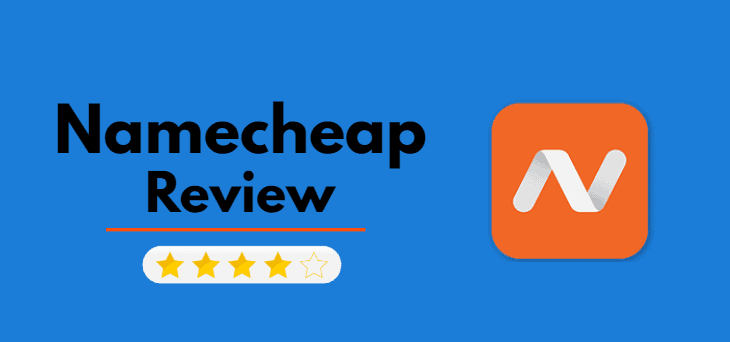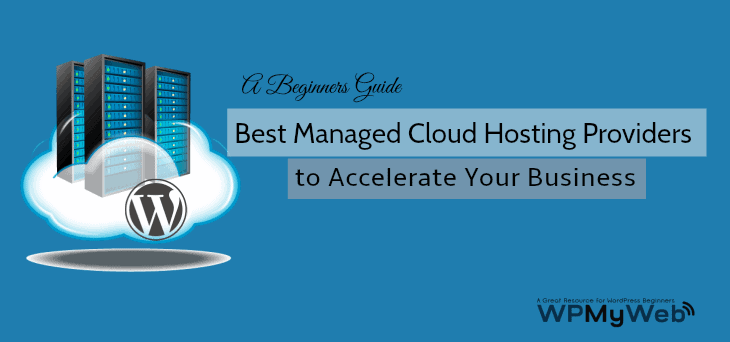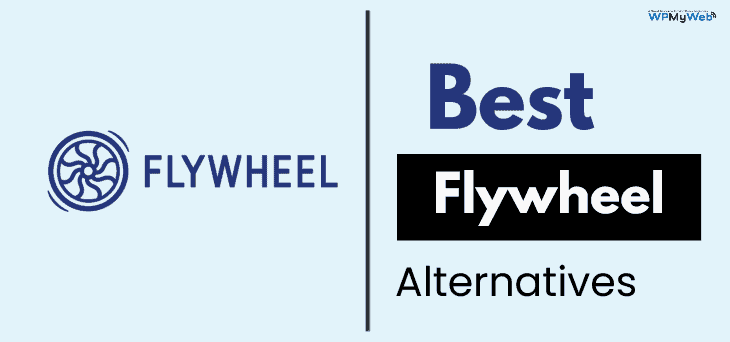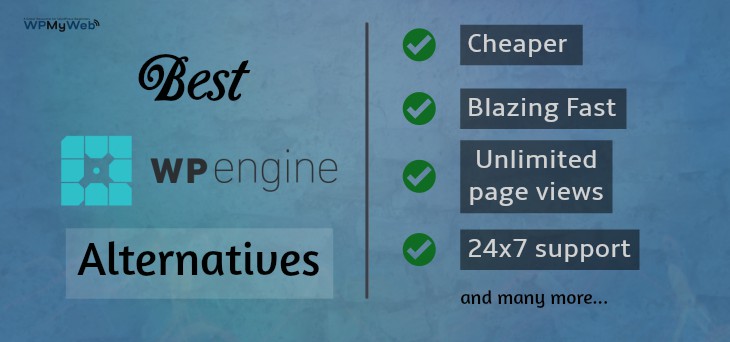Namecheap Review 2023: My Honest Opinion After One Year
When it comes to starting a blog on a limited budget, Namecheap stands out as an exceptional option.
Namecheap offers affordable domain names and web hosting plans. For just $1.58 a month, you can purchase Namecheap’s basic shared hosting plan—a bargain for the price.
I found it more impressive that over 2 million customers worldwide and big brands like Buffer, Imgur, and Figma use Namecheap to register their domains.
But are their services good enough to use? Or do their prices make them less reliable?
In this Namecheap review, I’ll examine their pricing structure, ease of use, customer support, security, and, most importantly, performance.
To conclude this review, I’ll give you my final thoughts on Namecheap. In addition to that, I have included a few similar hosting providers that you might want to consider.
Pros and Cons of Namecheap Hosting
Pros of Namecheap Hosting:
1. Affordable pricing for hosting plans
2. Excellent customer support with 24/7 live chat assistance
3. User-friendly interface
4. Reliable uptime with minimal server downtime
5. Fast website loading speeds
Cons of Namecheap Hosting:
1. Limited data center locations
2. No phone support
Who is Namecheap Best for?
When considering a hosting provider, it’s important to evaluate if Namecheap aligns with your specific requirements. Based on my analysis, here’s a breakdown of who Namecheap is best suited for and who might not find it the ideal choice:
Namecheap Is Best For:
Individuals and small businesses on a budget
Bloggers and personal website owners
Startups and entrepreneurs looking for affordable hosting options
You prefer easy integration and management with WordPress.
Namecheap may not be the best choice if:
You have a high-traffic website with extensive storage and processing needs.
You are an enterprise or large company.
What is Namecheap?
Namecheap is a US-based company that was founded in 2000 by Richard Kirkendall.
Namecheap started as a domain registrar and later expanded into hosting security and web development.
Now, Namecheap offers a wide range of hosting services. This includes shared, WordPress, reseller, VPS, and dedicated servers. It looks like Namecheap is trying to be a one-stop shop for all your hosting needs.
Namecheap has a very simple and easy-to-use control panel. The hosting plans are clearly laid out, so you don’t have to go through many menus just to see what service they offer.
It is also very easy to manage your account and upgrade or downgrade your plan.
Plus, each shared hosting plan has plenty of features you would expect from a hosting provider.
These include:
- a free domain name
- free email accounts
- one-click installs for over 70 apps and software
- free website builder
- free SSL certificate
You can also host unlimited websites on their shared hosting plans.
Additionally, Namecheap’s round-the-clock customer support ensures assistance is readily available.
Namecheap’s shared hosting plans start at just $1.98 per month, making them a cost-effective solution for your website. Plus, there’s a 30-day money-back policy.
All in all, Namecheap is a great shared hosting provider that offers affordable plans with plenty of features.
Hosting Management: Is Namecheap Easy to Use?
In this section of my Namecheap review, I’ll explore the user interface, tools, and features that Namecheap offers.
The user interface looks a little dated at first. It’s not as sleek or modern as other hosting companies I’ve reviewed, such as Bluehost and Hostinger. However, it’s easy to use and navigate through.
The navigation is easy to understand, and all features are labeled and categorized.
For example, the Expiring/Expired section shows if your domain or service subscriptions are about to expire.
If you click on the Hosting List, you can see all your hosting subscriptions. They’re listed by plan names, current status, and expiration dates.
There’s also an option, “Go to cPanel,” which will take you to your hosting control panel.
The coolest thing about Namecheap? No annoying ads or pop-ups. It’s a breath of fresh air. I wish every hosting company would follow its lead and make browsing much less annoying.
Let’s look at the cPanel now.
How Does the Namecheap Control Panel Look?
Namecheap has an intuitive and user-friendly cPanel.
If you’ve previously used cPanel, browsing the control panel will be a breeze. If not, no worries. The control panel is designed for simple access to the necessary options.
There are different sections, such as Files, Emails, Databases, Security, Software, and more.
To help you navigate around the cPanel, here is a quick rundown of different sections:
Files: This is where you can manage your website files. Plus, you can take backups, check disk usage, and create FTP accounts.
Email: You can create email accounts and manage your email settings from this section. You can also set up autoresponders, forward emails to other addresses, and manage spam settings for each domain.
Databases: From here, you can access phpMyAdmin and manage your MySQL databases.
Domains: From this section, you can manage all your domains. You can also create subdomains, set up redirects, manage DNS zones, etc.
Security: This is where you can manage your security. You can enable 2FA, set up SSL certificates, ModSecurity, etc.
Metrics: From this section, you can check your server stats, disk usage, and bandwidth. You can also configure alerts and set up notifications.
Software: You can install WordPress or any other software from this section. You can also update your website’s PHP version and manage Composer packages.
In total, The control panel is easy to use and manage, providing all the necessary functionality for running a website. It is perfect for beginners entering the world of hosting and site management.
Namecheap Website Builder Review
Namecheap has recently added a website builder to its list of products.
It’s a drag-and-drop website builder suitable for simple websites like blogs, landing pages, or online stores. Plus, it has over 200 responsive templates for different types of websites.
The website builder has pretty much everything that you need to create a basic website.
There are options for contact forms, maps, media, galleries, etc. In addition, you can add social media icons, a calendar, and a countdown timer.
While testing the website builder, I found it somewhat easy but not very intuitive. I experienced confusion and struggled to understand what to do.
The interface is cluttered with buttons, menus, and tabs that can be distracting if you’re not used to seeing them in one place.
Overall, the website builder is pretty good. It’s easy to use and has all the necessary features to create a basic website. The only thing that I didn’t like was the interface. It was too cluttered and confusing at times.
Performance: Is Namecheap Fast?
Next, I will discuss Namecheap’s performance.
As you know, your website’s performance is not just about how fast it loads in a browser. It’s also about how quickly Namecheap can resolve DNS queries and respond to client requests.
So, If your site takes too long to load or experiences frequent outages due to poor performance, it can result in customer attrition and harm your reputation.
To evaluate Namecheap’s performance, I analyzed uptime, speed, and response time during peak traffic.
Let’s start with uptime.
Namecheap Uptime Test Result
Uptime is the percentage of time your website is available to visitors.
If your site is offline, it can’t generate revenue or new customers. So, uptime is critical in assessing hosting company performance.
Using the Uptime Monitor tool, I ran an uptime test on Namecheap’s shared hosting platform. The tool monitors uptime every 30 seconds and records the result as a percentage.
The result? Namecheap had an average uptime of 99.97% throughout the test, which lasted one month. That’s excellent.
The screenshot below shows that Namecheap’s uptime has been consistently strong for several years.
The uptime is great, but the response time could be better. The average response time was around 660 ms, which isn’t bad but could be improved.
Namecheap Speed Test Result
Let’s focus on the crucial part of the Namecheap review—the speed test.
A speed test is a way to measure how quickly your website loads. It helps test the performance of web hosting.
I used several speed testing tools, such as Pingdom, GTmetrix, Google PageSpeed Insights, Bitcacha, and WebPage Test, to measure the speed.
The tests were conducted on a clean, newly installed version of WordPress.
Here’s what I installed on my test site:
- Fresh WordPress (version 6.2)
- Astra theme with starter templates (free)
- WP Forms (free)
- Spectra (free)
- W3 Total Cache (default settings)
Now that you know what I installed on my test site, let’s get to the results.
Pingdom Result:
Based on the Pingdom speed test conducted in San Francisco (USA), Namecheap attained a performance grade of 81 (B).
The website’s page size measured 968 KB, accompanied by 45 requests and a recorded load time of 937 ms.
GTmetrix Result:
Namecheap scored 89 (A) in the GTmetrix speed test from Texas (USA). The page size was 1.04 MB, with 32 requests, and the fully loaded time was 880 ms. It demonstrated efficient page loading and excellent speed optimization.
PageSpeed Insights Result:
As per the PageSpeed Insights results, Namecheap obtained a mobile score of 59 and a desktop score of 61.
These results are slightly lower than the average scores but can be improved with some optimization.
Bitcatcha Result:
Based on the results of the Bitcatcha server response time test, Namecheap achieved excellent performance.
The server response time in the US (West) was measured at 20 ms, while it reached 184 ms in Singapore. In Mumbai, it recorded 255 ms, and in London, it registered 137 ms.
These response times indicate efficient and reliable server performance, resulting in an A+ rating for Namecheap.
WebPageTest Result:
According to the WebPage Test results, Namecheap performed excellently.
The server responded in just 0.442 seconds (Time to First Byte – TTFB), the largest element on the page became visible in 1.673 seconds (Largest Contentful Paint – LCP), and the total load time was 1.7 seconds.
The page size was 418 KB. These results indicate a fast-loading website and a good user experience in terms of server response and visual rendering.
Namecheap Stress Test Result
Next, I ran a stress test on my site to evaluate its performance under heavy load. I used the K6 tool, a free tool for simulating real-world user activity.
The stress test lasted 6 minutes, resulting in 7,730 requests at an average rate of 21 requests per second.
Even under high load, the website performed exceptionally well, demonstrating resilience with no recorded HTTP failures.
Remarkably, the site effectively managed peak requests per second, reaching an impressive rate of 44. This achievement underscores its ability to handle increased traffic effectively.
Overall, the stress test revealed that Namecheap’s website exhibited reliable performance and responsiveness under heavy load conditions.
Security: Is Namecheap Secure?
No website is completely secure, but a good hosting company should take steps to prevent site defacement or hacking.
Namecheap has a long history of security, and they take the issue seriously.
Their security features include a variety of options to protect your site, including:
1. 2FA: Namecheap offers 2FA for all customers. 2FA is an extra layer of security that adds a second step to the login process.
2. DDoS Protection: Namecheap incorporates robust protection to defend against malicious attacks. This safeguard prevents website availability and performance disruption by mitigating the impact of DDoS attacks.
3. Domain Lock Security: Namecheap offers domain lock security to prevent unauthorized transfers of your domain to another registrar. This feature adds an extra layer of protection and ensures the integrity and ownership of your domain name.
4. Free Domain Privacy for Life: Namecheap provides free domain privacy for life, shielding your personal information from being publicly accessible in the WHOIS database. This protects you from spam, unwanted solicitations, and potential privacy risks.
5. Premium DNS (Optional): Namecheap offers Premium DNS as an optional feature. This enhanced DNS service provides faster response times and advanced features such as geolocation lookups.
6. Free PositiveSSL Certificate: Namecheap offers a free PositiveSSL certificate for the first year.
7. Leech Protection: Leech Protection prevents users from sharing and publicly posting passwords. It also allows you to redirect or suspend compromised accounts.
8. Jellyfish Spam Protection: It is a machine learning-based spam filter and management tool that safeguards your inbox from email threats such as spam, phishing, viruses, malware, and spoofing.
9. Hotlink Protection: Hotlink protection prevents third-party sites from using your images and videos without permission.
In total, Namecheap offers a broad range of security features that protect your website, email accounts, and data.
How is Namecheap’s Customer Support?
Namecheap’s customer support is pretty good.
They offer 24×7 email and live chat support but no phone support.
In my experience, their live chat support is more than enough and is available on almost every website page. Additionally, I always received prompt responses within a minute or two.
For most issues, they were able to help me out right away. If not, they provided a ticket number and indicated I would receive an email response within approximately 24 hours.
Furthermore, their website has a comprehensive knowledge base covering common and advanced topics.
In total, their customer service was very helpful and responsive. I had no issues with their live chat or support ticket, so they got full marks in this category.
Namecheap Hosting Pricing Review
Namecheap offers a wide range of hosting services that fit any business. This includes shared, WordPress, VPS, Dedicated, and reseller hosting.
Their shared hosting plans are one of the cheapest in the industry at $1.58 per month.
This plan includes 20GB storage, 30 mailboxes, unmetered bandwidth, one free website migration, a free website builder, and more.
However, one feature that caught my attention was the capability to host up to three domains from a single hosting account, even on their Stellar plan. This sets them apart from other web hosts who typically restrict hosting to only one website.
Next is their Stellar Plus plan, their most popular one, with a monthly price tag of $2.28.
It has all the features of the Stellar plan, unmetered storage, unlimited domains, auto backup, unlimited email accounts, etc.
This plan is suitable for small businesses and individuals who want to host multiple websites.
In addition, they have an Advanced plan available at $4.48 per month. But honestly, it’s hard to see much difference between their Advanced and Stellar Plus plans. The only difference I found was that the Advanced plan comes with eAccelerator and xCache.
However, this is a small dealbreaker. The price difference is too big to justify it.
So, if you want to start with Namecheap, I recommend the Stellar plan. It’s cheaper and more than enough for most of the basic websites.
Namecheap Money-Back Policy
They provide a 30-day money-back guarantee, but it only applies to hosting services, not add-ons like domains or renewals.
Do I Recommend Namecheap?
Yes, I highly recommend Namecheap Web Hosting.
It’s a great value with reliable support, solid performance, and a user-friendly interface. Beginners will love it, and advanced users will find many customization options.
Just keep in mind that it might have some minor limitations for resource-intensive websites.
In summary, Namecheap is the go-to choice for individuals, small businesses, and bloggers seeking affordable and trustworthy hosting.
Alternatives to Namecheap
When considering hosting providers, exploring alternative options that may better suit your specific needs is essential. Here are a few Namecheap alternatives:
Hostinger
Hostinger is a popular web hosting provider that offers both shared and VPS hosting options. Their pricing is very competitive, and their user experience is comparable to Namecheap.
They also provide one-click installs for WordPress, Joomla, Drupal, Magento, and PrestaShop. The best part about Hostinger? You get a free domain name, which is a major perk.
Bluehost
Bluehost is a well-established hosting company recommended by WordPress.org. They offer reliable hosting solutions, including shared, VPS, and dedicated servers.
Bluehost is known for its strong uptime, excellent customer support, and beginner-friendly features.
DreamHost
DreamHost is a popular hosting provider offering fast and reliable hosting solutions. Their plans include unlimited domains, bandwidth, and storage space.
They also offer premium features like free domain registration, SSD storage, and 24/7 support. Their hosting plans start at $2.59 monthly and are available in two different price tiers.
A2 Hosting
A2 Hosting is a reliable web hosting provider offering quality hosting solutions. They offer a wide range of hosting plans with unlimited storage, bandwidth, and domain registrations.
Their entry-level plan starts at $3.95 per month and includes free website migration, Cloudflare CDN, daily backups, and SSL certificates.
Cloudways
Cloudways is a managed cloud hosting platform that offers various cloud hosting plans. Their entry-level plan costs $10 per month and includes unlimited applications, a staging environment, dedicated firewalls, free SSL, etc.
They also offer a three-day free trial plan to test the platform and explore its features.
Namecheap Review: FAQs
Q1: Is Namecheap good for web hosting?
Ans: Namecheap offers reliable and affordable web hosting services, making it a good option for many users.
Q2: Is Namecheap good for domain registration?
Ans: Yes, Namecheap is known for its user-friendly domain registration services and competitive pricing.
Q3: Why are Namecheap domains so cheap?
Ans: Namecheap focuses on providing cost-effective domain registration by minimizing overhead costs and offering competitive pricing.
Q4: Is Namecheap better than GoDaddy?
Ans: The choice between Namecheap and GoDaddy depends on individual preferences and needs. Both providers offer reliable services, but Namecheap is often favored for its competitive pricing and straightforward interface. You can find out more about the two in my Namecheap vs GoDaddy comparison.
Q5: Is Namecheap legit?
Ans: Yes, Namecheap is a legitimate and reputable domain registration and web hosting company.
Q6: Is Namecheap hosting good for WordPress?
Ans: Yes, Namecheap hosting is suitable for WordPress websites, offering easy installation and management with their WordPress hosting plans.
Q7: Is Namecheap better than Hostinger?
Ans: The preference between Namecheap and Hostinger depends on specific requirements and preferences. Both providers offer reliable services, but Namecheap is often praised for its domain registration, while Hostinger is known for its affordability and user-friendly interface. For more information, read my comparison of Namecheap and Hostinger.
*This post may have affiliate links, which means I may receive a small fee if you choose to purchase through my links (at no extra cost to you). This helps us to keep WPMyWeb up and running and up-to-date. Thank you if you use our links, we really appreciate it! Learn more.





